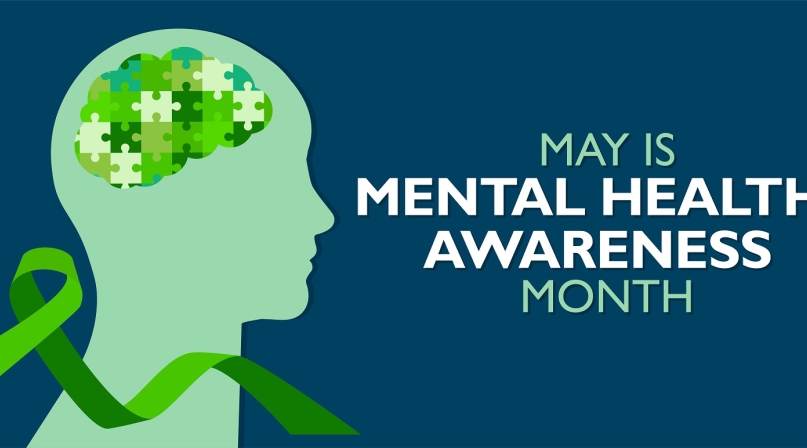Resources available for Mental Health Awareness Month
Upcoming Events
Related News

Key Takeaways
County governments across the nation have committed to enhancing their community’s behavioral health needs. While counties are at a different point in establishing a continuum of care — some are just beginning while others have robust systems in place — it can be helpful to pause and take note of the available resources and examples in the behavioral health space, especially during Mental Health Awareness Month.
NACo publishes resources year-round to support county efforts surrounding behavioral and mental health. Some of the notable recently published resources include a toolkit explaining the behavioral health continuum of care; a behavioral health funding chart; a 988 suicide and crisis line toolkit and county strategies for recruiting and retaining a behavioral health workforce blog.
Learn more
Ways for counties to participate in Mental Health Awareness Month
NACo has built out a toolkit for counties based on three components – Someone to Call, Someone to Respond and Somewhere Safe to Go. Each aspect of the continuum plays a role in providing holistic care to an individual experiencing a behavioral health crisis. As previously mentioned, counties are working to establish the best continuum of care possible for their communities.
Someone to Call
Individuals can reach out to crisis lines in times of need. This point of contact provides the most immediate access to care. Fairfax County, Va. uses a local regional crisis call center to receive all 988 calls, texts and chats. The county also has a dial-988 educational campaign coordinated through county agencies, leaders, social media, local outlets and community meetings.
Similarly, the Pima County, Ariz. Sheriff’s Department, in partnership with Arizona Complete Health, has developed a program that triages mental health 911 calls. If a 911 call is identified to be a mental or behavioral health crisis, the call is then transferred to a trained crisis specialist via the Arizona Crisis Line. If the specialist is unable to help de-escalate the call over the phone, they will dispatch a crisis mobile team to the caller.
Someone to Respond
Mobile teams provide in-person responses to a behavioral health crisis. Counties have developed various models of crisis response teams that best fit their area. As a part of the Douglas County, Colo. Mental Health Initiative, the county has established community response teams, consisting of a fire/EMS unit, a law enforcement and a clinician responder and are deployed to mental health crises. Each team member fills a unique role to ensure safety, conduct medical clearances and assess mental health needs.
DeKalb County, Ga. has also established a mobile crisis service. The county’s police department uses a Mobile Crisis Unit — composed of a registered nurse and a police officer — to intervene and evaluate individuals experiencing a crisis in the community.
Somewhere Safe to Go
A triage center provides behavioral health resources and assistance. Opened in the summer of 2021, “The Link” is a community triage center in Minnehaha County, S.D. The 24/7 access center provides response and treatment for individuals experiencing mental health crises, withdrawal symptoms and intoxication.
Likewise, the Grand Lake Mental Health Center in Northeast Oklahoma is a not-for-profit Certified Community Behavioral Health Clinic serving the communities of 12 rural counties in the region. The center provides crisis, outpatient, inpatient, mental health, wraparound and emergency detention services. It is staffed by nurse practitioners, licensed mental health professionals and peer support specialists who have lived experience with mental illness and/or SUD (substance use and substance use disorders).
Counties are on the front lines of implementing services across the continuum of care. Aligned with this, NACo aims to reinforce and support county efforts in the practice of behavioral health.
Attachments
Related News

USDA and HHS release new dietary guidelines
On January 7, U.S. Department of Agriculture Secretary Brooke Rollins and U.S. Department of Health and Human Services Secretary Robert F. Kennedy, Jr. unveiled the new Dietary Guidelines for Americans, 2025–2030.

County Countdown – Dec. 15, 2025
Every other week, NACo's County Countdown reviews top federal policy advocacy items with an eye towards counties and the intergovernmental partnership.